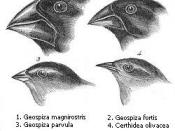SEX DIFFERENCES IN JEALOUSY: EVOLTION, PHYSIOLOGY, AND PSYCHOLOGY (Buss et al, 1992, as cited in Funder & Ozer, 1997)
The article titled, "Sex differences in jealousy: evolution, physiology, and psychology" written by Buss, Larsen, Western and Semmelroth (1992, as cited in Funder & Ozer, 1997, p. 211), discuss that evolution is rooted in reproductive success of the various species. Therefore, the core content of studying evolutionary psychology includes researching sexual differences (Buss et al, 1992, as cited in Funder & Ozer, 1997, 211). There are benefits and costs or the adaptive problems to investing in offspring for both the males and females (Buss et al, 1992, as cited in Funder & Ozer, 1997, 211). The benefit is of course the sheer volume of gene vehicles (Buss et al, 1992, as cited in Funder & Ozer, 1997, 211). The costs are males invest time and energy in mating and raising offspring, yet they never sure if the offspring is in fact theirs.
The benefit to females is that shared parental investment in raising the offspring, resources, and security of male caring for her and their offspring (Buss et al, 1992, as cited in Funder & Ozer, 1997, 211). The costs to females are mate failing to invest in her offspring due to interest in another female; time spent in raising the offspring; and lost mating opportunities (Buss et al, 1992, as cited in Funder & Ozer, 1997, 211).
Buss et al (1992, as cited in Funder & Ozer, 1997, p. 210), hypothesize that due to paternity uncertainty, males should experience sexual jealousy, and due to parental investment costs, females should experience higher amount of emotionally jealousy. Buss et al (1992, as cited in Funder & Ozer, 1997, p. 211), define jealousy as "state that is aroused by perceived threat to a...


